The Atalanta anti-piracy operation. European and third-party device (update 4)
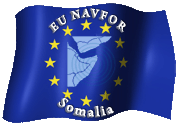 (B2) The operation launched by the European Union on 8 December to fight against pirates (EU NAVFOR Atalanta) is now operational. And above all seems to be emulated. Since around twenty warships are now in the area (around thirty eventually.
(B2) The operation launched by the European Union on 8 December to fight against pirates (EU NAVFOR Atalanta) is now operational. And above all seems to be emulated. Since around twenty warships are now in the area (around thirty eventually.
IOC proclaimed
Since the arrival in Djibouti of the Greek command boat, the Psara (December 16), and the authorization given by the Bundestag (December 19) for the engagement of the German frigate, already in the area, the operation has now reached initial operating capability (IOC). A first support mission took place, which began last Sunday, to accompany a WFP boat.
A very European command
The operation has been commanded by British Rear Admiral Philip Jones since British Operation Headquarters (OHQ) Northwood. His deputy is the French Rear Admiral Jean Pierre Labonne (later noted by a German). On the spot, the force commander (at sea) is ensured by rotation between Greece, Spain and the Netherlands. The Greek Commodore Antonios Papaioannou now commands the force. He is to be replaced in April 2009 by a Spanish officer, then by a senior Dutch officer from August 2009. The logistics base is located in Djibouti (with about fifteen men).
EU NAVFOR Atalanta lasts a year
The operation is more or less divided into three periods of four months each (December-March, April-July, August-November). It should bring together between 6 to 8 ships, in the long term, 2 to 3 planes, and helicopters (each boat is equipped with them), and about 1200 men. The operation thus starts with 4-5 boats at the beginning (France, United Kingdom, Greece, Germany), 7 boats in May (with Spain and Sweden). The Netherlands and Belgium, taking over later.
First period
La France provides a frigate and an air patrol aircraft (Bréguet Atlantique 2), as well as various logistical resources from its permanent base in Djibouti. It was the surveillance frigate Nivôse (F-732) which ensured the mission at the beginning until December 15th. It is relieved by a notice on Chief Petty Officer L'Her (F-792) until the end of December. And the surveillance frigate Floreal (F-730) - based in Reunion - then normally takes over. The Frigate John of Vienna (D-643) can also intervene as reinforcement.
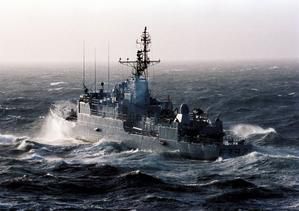
Le United Kingdom provides a frigate, the "HMS Northumberland" (F-238) currently (NB: the "HMS Cumberland" (F-85) has returned to the country).
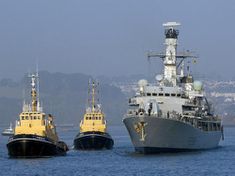
La Greece provides the flagship, a frigate Psara, and his helicopter. Who arrived in the area on December 16. He sailed from Piraeus on December 10 and passed the Suez Canal on December 13.
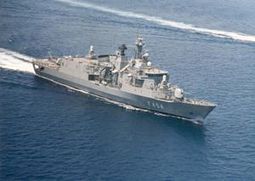
THEGermany provides a frigate, the Karlsruhe (F-212), equipped with two helicopters. Commandos will take place in sensitive merchant ships. Berlin also provides air patrol hours. the Mecklenburg-Vorpommern (F-218) which is taking part in Operation Enduring Freedom could also be called in as reinforcements. The government made the proposal on Wednesday and the Bundestag approved this mandate on December 19 (491 votes for CDU-CSU, SPD, FDP - 55 against Die Linke, Die Grüne) - download the mandate (in German). The mandate is valid for a maritime area of three million km2. It allows a maximum workforce of 1400 men to be deployed on the operation. " This gives a little flexibility to carry out our mission explained Defense Minister Franz Josef Jung.
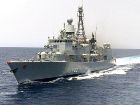
THESpain provides a P3-Orion surveillance aircraft, based in Djibouti. It has already carried out certain protection missions under the national flag in November-December.

Second period
L'Spain will provide for the second period, a frigate, Victoria (F-82), as well as a logistic support ship.
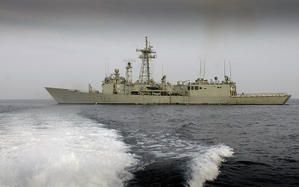
La Sweden will send two corvettes (160 men), a support ship, as well as a security force to accompany the WFP ships from April. Planning has begun and the cost of the operation is estimated at 185 million crowns (about 17,3 million euros). The decision must be confirmed by Parliament (at the beginning of the year).
L'Italy could also send a frigate. But the decision is still under discussion in Rome.
Third period
The Netherlands : a frigate Hr.Ms. Evertsen (F-805) with 180 sailors and 25 marine commandos that can be embarked on civilian ships. A regular in this area since he had accompanied the WFP boats from March to June 2008. Then relayed from October to December by the Hr Ms De Ruyter, who has since returned home.
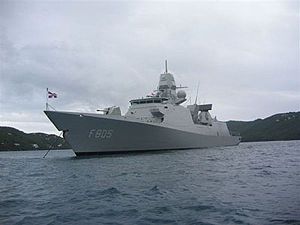
La Belgium provides a frigate, the Louise Marie (F-931), based in Zeebrugge, will come alongside the Dutch ships to reinforce the European force during the third period of the operation, from August to November 2008.

Third country
La participation of third States at Atalanta is not really fixed yet. But the participation of the Switzerland could be envisaged (with commandos) and that of Norway had been mentioned at some point.
The United States, Canada, Pakistan, Denmark (*) already have vessels in the area under the counter terrorist coalition CTF 150 (in which the United Kingdom, Germany and France also participate).
Are also present in the Gulf of Aden - under national flag (failing integration of certain countries in Atalanta, close coordination should be considered):
• The Russia with the destroyer Neustrachimy / Fearless (712)
• L'India sent a destroyer, the Mysore (D-60) - after the INS frigate Tabar - and could send a patrol plane based in Djibouti.

• L'Iran just sent a warship to the Gulf of Aden.
• The China sends three ships - two destroyers and a supply ship. They will depart from its port on the south coast of Hainan after Christmas (26th).
• The South Korea could also send a destroyer in 2009, after acceptance by its Parliament.
• Egypt, Ukraine have also indicated that they want to send warships.
(Nicolas Gros-Verheyde)
(*) Member State of the EU, Denmark does not take part in the Europe of defence. In this respect, it is therefore considered as a 'third country', and a specific agreement must be concluded for its participation.
NB: Updated on December 21.
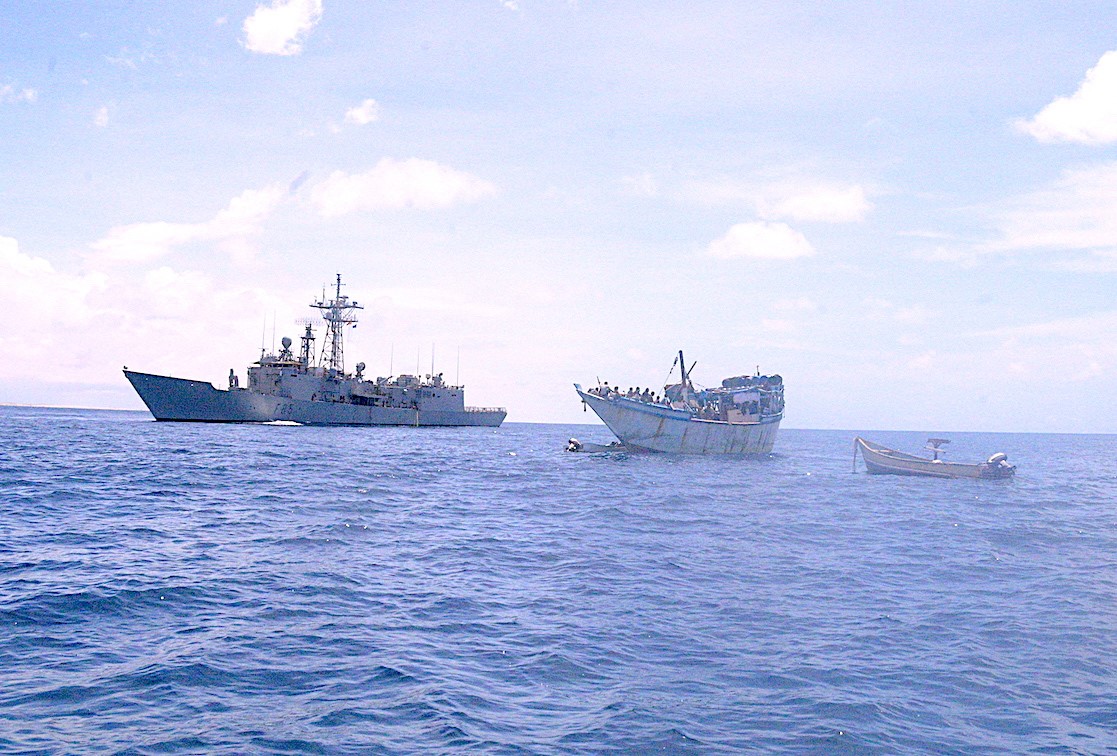

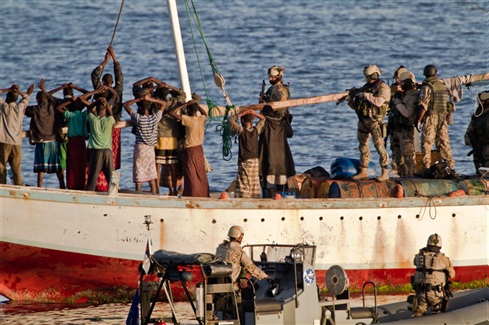
Comments closed.